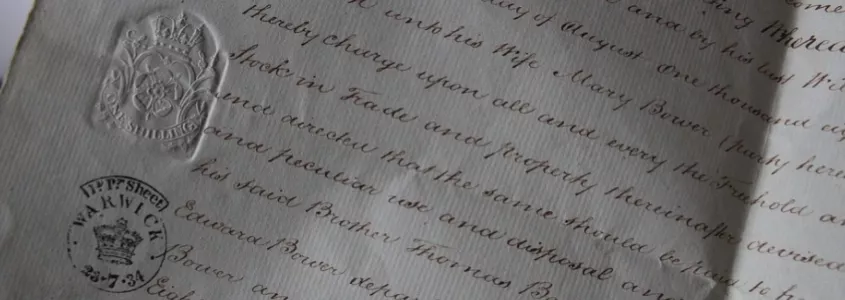
Table of contents
The certificate of last will and testament is a document that generally leads to a great deal of confusion. This is mainly due to the fact that many people interpret it to be the same as a will, when in fact they have little to do with each other. This is undoubtedly one of the most common confusions in all law firms. To resolve this misconception of the term, we will explain in this article exactly what it is and we will also add important information about how to apply for it, deliver it and pay for it.
What is and what is not a certificate of last will and testament?
The certificate of last will and testament is a document that certifies that a specific person has made a will and before which notary they have done so. In this way, a large part of the process is greatly simplified, as the search is carried out very quickly and easily. In addition, it should be emphasised that without it, no inheritance can take place. Therefore, it can be said that its importance is far greater than the information it possesses in itself.
So, having said all this, the last will and testament is not an official paper containing the testator's wishes or a list of all the assets he or she owned during his or her lifetime. In fact, as you may have noticed, it is not even close to that. However, it should be considered as a vital document to know where this information is to be found.
The last will and testament
Before continuing to talk about the certificate of last will and testament, we would like to make an aside to talk about the concept of the will. As we have already said, there is often confusion between the two terms, so it is best to resolve any doubts before going any further into the subject.
A will is the official act that a person disposes of in relation to the destination that he or she wants his or her assets to have after his or her death. The only requirement of the law is that the person in question must be over 14 years of age and must not have been incapacitated by a judge by means of a court ruling.
There are several types of will. The first of these is the 'Ológrafo', which is one that, from beginning to end, is written, dated and signed by the testator. In order to be effective, it must be validated in a Court of First Instance within 5 years of the testator's death.
On the other hand, an open will is one that is presented before a notary, making the notary responsible for the preservation of the original. This provides the security that its loss or destruction is practically impossible. The notary may request the presence of two witnesses in the event that the testator is blind or cannot read or sign.
Finally, it only remains to mention the closed will, which is one in which the testator does not reveal his or her last will, but declares that it is contained in a document, either handwritten or typed, to a notary. It should be noted that people who are blind or who cannot read or write cannot make use of this formula.
These are the concepts that we wanted to clarify about the will in this article on the certificate of last wills. To give you an idea, thanks to this document, you can save yourself the trouble of searching for and finding the will of the deceased, since, if it has been deposited with a notary, it will appear immediately.
Important aspects of the certificate of last wills and testaments
The first thing to do to obtain the certificate of last will and testament is to fill in and present the Form 790 to the corresponding body. It can be requested and downloaded from the Internet from the official website of the Ministry of Justice. It can also be requested and submitted at the Civil Registries of the city or municipality in which you live, at the Territorial Offices of the Ministry of Justice and at the Central Citizen Service Offices.
The application must be submitted 15 working days after the death. Likewise, form 790 must be accompanied by the original death certificate or, failing this, a certified copy from the corresponding Civil Registry. It must also include the names of the parents of the deceased. If the death occurred after 2 April 2009, it is sufficient to present the National Identity Card or Foreigner's Identity Number, passport number or any other official document that accredits their identity in their country of origin.
The corresponding fees must be paid at a financial institution that collaborates with the Tax Agency or through any of the electronic banking options offered. These are currently set at 3.70 euros, although it is true that this may vary each year depending on various circumstances. In order to carry out this procedure electronically, it is necessary to have a digital certificate and access the electronic headquarters of the Ministry of Justice.
It should also be noted that, in the case of residing abroad, it is compulsory to pay the fees corresponding to Form 790 by bank transfer. However, this must be made from one of the institutions listed on the form attached to the document and which has a branch in the country from which you are operating. In the event that the wrong amount is paid, the bank will not be able to refund the amount, so in order to request a refund, the interested party will have to open a file for the refund of undue income.
In short, this is all you need to know about what a certificate of last will and testament is, what it is for and how to obtain and present it. We hope that, from now on, you will not have any doubts when it comes to differentiating it from a will or any other similar document.

"Anywhere in Spain"
With our online appointment system you will have immediate advice without the need for face-to-face visits or travel.
One of our lawyers specialized in your area of interest will contact you to formalize an appointment and make your consultation by video call.

Add new comment